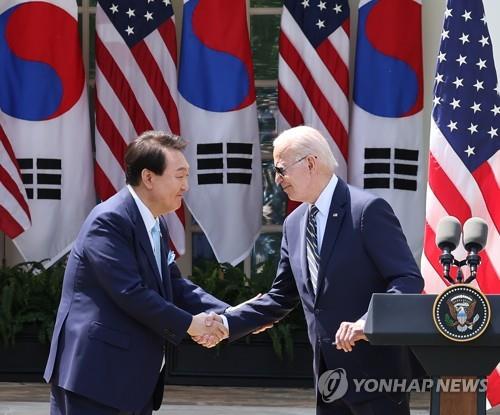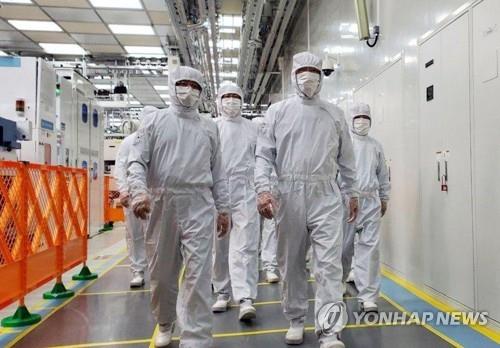
In October, the U.S. announced a set of rules that restrict exports of certain advanced semiconductor manufacturing equipment and items to companies in China in an apparent bid to slow Beijing’s technological advances.
But Samsung Electronics Co. and SK hynix Inc. received a one-year waiver amid concerns that the move would disrupt their businesses in China as the South Korean chip giants rely on U.S. equipment for part of their production there.
“We’ve told the U.S. side that our companies should be able to maintain their current operations in China as long as their business activities do not disrupt global semiconductor supply chains,” Industry Minister Lee Chang-yang told reporters.
“The exemption was set to expire in October, but it is expected to be extended for a considerable period of time. We will continue consultations with the U.S. side,” he added.
South Korean chipmakers are facing uncertainties amid the intensifying Sino-U.S. rivalry over technology prowess.
In addition to the export restrictions, the U.S. Chips and Science Act has been a major concern as it would require too much information from and regulations for foreign chipmakers in exchange for subsidies and tax incentives for setting up production facilities in the U.S.
It also contains rules that prohibit the significant expansion of their operations in China.
“During my talks with the U.S. commerce secretary, we’ve said that its guidelines need to be universal, general and transparent so as not to discriminate against any foreign companies,” Lee said. “We will actively collect opinions from business circles and continue discussions with the U.S. to maximize our benefits.”
During a joint press conference with President Yoon Suk Yeol in Washington last month, U.S. President Joe Biden rejected criticism of the negative impacts of his regulations regarding advanced industry sectors on South Korean businesses, stressing that the measures were “not hurting anybody” and rather “a win-win” as the rules are “creating jobs in South Korea, not just with SK … with Samsung and other industries.”
Speaking of the possible hikes in electricity and gas rates for the second quarter, Lee said that the government will make an announcement “very soon.”
When and how much the government will raise utility bills has been under the media spotlight amid high inflation, snowballing debt at the Korea Electric Power Corp. (KEPCO) and political burdens, as it postponed the announcement last month.
Sources say the rates would be raised by about 7 won (US$0.01) per kilowatt hour (kWh), which is about half of the 13.1 won increase in the first quarter.
“It is far from desirable to politicize the energy issue as it must be considered based on economic factors,” Lee said. “KEPCO is also devising additional self-rescue measures such as property sales for business normalization.”
Some have called on KEPCO chief Cheong Seung-il to step down to hold himself responsible for the massive losses, but the minister said the personnel issue should be separated from the self-rescue efforts.
Last year, KEPCO suffered a record operating loss of 32.63 trillion won, more than quadruple from a year earlier.
In a report submitted to the National Assembly, KEPCO called for a 51.6 won rate increase this year, though lawmakers urged the utility firm to come up with stringent cost-cutting measures.

Yonhap




